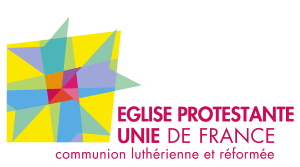United and uniting churches

United and uniting churches are churches formed from the merger or other form of union of two or more different Protestant denominations.
Historically, unions of Protestant churches were enforced by the state, usually in order to have a stricter control over the religious sphere of its people, but also other organizational reasons. As modern Christian ecumenism progresses, unions between various Protestant traditions are becoming more and more common, resulting in a growing number of united and uniting churches. Some of the recent major examples are the United Protestant Church of France (2013) and the Protestant Church in the Netherlands (2004). As mainline Protestantism shrinks in Europe and North America due to the rise of secularism, Reformed and Lutheran denominations merge, often creating large nationwide denominations. The phenomenon is much less common among evangelical, nondenominational and charismatic churches as new ones arise and plenty of them remain independent of each other.
Perhaps the oldest official united church is found in Germany, where the Evangelical Church in Germany is a federation of Lutheran, United (Prussian Union) and Reformed churches, a union dating back to 1817. The first of the series of unions was at a synod in Idstein to form the Protestant Church in Hesse and Nassau in August 1817, commemorated in naming the church of Idstein Unionskirche one hundred years later.[1]
Around the world, each united or uniting church comprises a different mix of predecessor Protestant denominations. Trends are visible, however, as most united and uniting churches have one or more predecessors with heritage in the Reformed tradition and many are members of the World Alliance of Reformed Churches.
Conciliar movement
In the 1950s and 1960s an ecumenical spirit emerged in many churches in the United States of America, leading to a conciliar movement known in some circles as Conciliarity. A product of this movement was the Consultation on Church Union (COCU). COCU disbanded formally in 2002 but moved into the Churches Uniting in Christ movement.
United and uniting churches around the world



- Australia: Uniting Church in Australia, the 1977 union of Congregationalist, Methodist, and Presbyterian churches
- Bangladesh: Church of Bangladesh
- Canada: United Church of Canada, the 1925 union of Congregationalist, Methodist, and a majority of Presbyterian churches (including Bermuda)[2]
- China: China Christian Council, founded in 1980 as an umbrella organization for all Protestant churches in the People's Republic of China
- Czech Republic: Evangelical Church of Czech Brethren, formed in 1918 in Czechoslovakia through the unification of the Protestant churches of the Lutheran and Reformed confessions. However, the ECCB has deeper roots in the Czech reformation: in the Utraquist Hussite Church (1431–1620) and in the Unity of Brethren aka Moravian Church (1457–1620).
- France: United Protestant Church of France, formed in 2013 through the unification of the Reformed Church of France and the Evangelical Lutheran Church of France.
- Germany: 11 united church bodies within the Evangelical Church in Germany from unions of Lutheran and Reformed churches: Evangelical Church of Berlin-Brandenburg-Silesian Upper Lusatia, Evangelical Church in the Rhineland, Evangelical Church of Westphalia (all of them are successors of the Evangelical Church of the old-Prussian Union), Evangelical State Church of Anhalt, Evangelical State Church in Baden, Bremian Evangelical Church, Evangelical Church in Central Germany, Evangelical Church in Hesse and Nassau, Evangelical Church of Hesse-Kassel and Waldeck and Evangelical Church of the Palatinate (Protestant State Church).
- Hong Kong: Hong Kong Christian Council, the ecumenical body of Christian churches, organizations and institutions in Hong Kong, founded in 1954[3]
- India: Church of North India, the 1970 union of Anglican, Methodist, Baptist, Disciples of Christ, Presbyterian, Congregational, and the Church of the Brethren churches
- India: Church of South India, the 1947 union of Anglican, Methodist, Congregational, Presbyterian, and Reformed Churches.
- Indonesia: Indonesia Christian Church or Gereja Kristen Indonesia, union of GKI East Java, GKI West Java and GKI Central Java in 1988
- Italy: Union of Methodist and Waldensian Churches, the 1975 union of Waldensian and Methodist Churches
- Jamaica: United Church in Jamaica and the Cayman Islands
- Japan: United Church of Christ in Japan (Nihon Kirisuto Kyōdan)
- Kiribati: Kiribati Uniting Church
- Melanesia: United Church in Papua New Guinea and the Solomon Islands
- the Netherlands: Protestant Church in the Netherlands, the 2004 union of the Dutch Reformed Church, the Reformed Churches in the Netherlands, and the Evangelical Lutheran Church in the Kingdom of the Netherlands
- Pakistan: Church of Pakistan, the 1970 union of Anglicans, Scottish Presbyterians (Church of Scotland), Methodists, and Lutherans.
- Philippines: United Church of Christ in the Philippines
- Sweden: Evangelical Free Church in Sweden, the 2002 union of the Örebrö Mission, the Free Baptists in Sweden and the Holiness Union.
- Thailand: Church of Christ in Thailand
- United Kingdom: United Reformed Church, the 1972 union of Congregationalist and Presbyterian churches in England and Wales, later joined by the Churches of Christ and the Congregational Union of Scotland. United Free Church of Scotland.
- United States: United Church of Christ, the 1957 union of the two previously united churches:Congregational Christian Churches and the Evangelical and Reformed Church. United Methodist Church, the 1968 union of the The Methodist Church and the Evangelical United Brethren Church. (Also see Churches Uniting in Christ.) Unitarian Universalist Association, the 1961 consolidation of the American Unitarian Association and the Universalist Church of America.
- International: International Council of Community Churches, International Council of Unitarians and Universalists
See also
- Christianity
- Church union
- Congregationalist polity
- Continuing church
- List of Christian denominations
- Protestantism
- Restoration Movement (related to the Church of Christ)
- United Church of Christ
References
- ↑ "Staatlicher Dirigismus und neue Gläubigkeit (Die Kirche im Herzogtum Nassau)" (in German). Nassau-info.de.
- ↑ "A Brief History | The United Church of Canada". United-church.ca. Retrieved 2013-05-21.
- ↑ http://www.almega.com.hk/acms/Default.asp